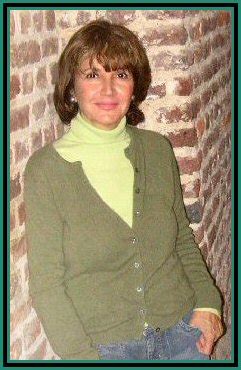A Quote by Regina Brett
My daughter had carried within her a story that kept hurting her: Her dad abandoned her. She started telling herself a new story. Her dad had done the best he could. He wasn't capable of giving more. It had nothing to do with her. She could no longer take it personally.
Related Quotes
I found her lying on her stomach, her hind legs stretched out straight, and her front feet folded back under her chest. She had laid her head on his grave. I saw the trail where she had dragged herself through the leaves. The way she lay there, I thought she was alive. I called her name. She made no movement. With the last ounce of strength in her body, she had dragged herself to the grave of Old Dan.
Selfishly, perhaps, Catti-brie had determined that the assassin was her own business. He had unnerved her, had stripped away years of training and discipline and reduced her to the quivering semblance of a frightened child. But she was a young woman now, no more a girl. She had to personally respond to that emotional humiliation, or the scars from it would haunt her to her grave, forever paralyzing her along her path to discover her true potential in life.
Yet there were times when he did love her with all the kindness she demanded, and how was she to know what were those times? Alone she raged against his cheerfulness and put herself at the mercy of her own love and longed to be free of it because it made her less than he and dependent on him. But how could she be free of chains she had put upon herself? Her soul was all tempest. The dreams she had once had of her life were dead. She was in prison in the house. And yet who was her jailer except herself?
[Keeping kosher was] the symbol of an initiation, like the insignia of a secret brotherhood, that set her apart and gave her freedom and dignity. Every law whose yoke she accepted willingly seemed to add to her freedom: she herself had chosen . . . To enter that brotherhood. Her Judaism was no longer a stigma, a meaningless accident of birth from which she could escape . . . It had become a distinction, the essence of her self-hood, what she was, what she wanted to be, not merely what she happened to be.
Perhaps I will die too, she told herself, and the thought did not seem so terrible to her. If she flung herself from the window, she could put an end to her suffering, and in the years to come the singers would write songs of her grief. Her body would lie on the stones below, broken and innocent, shaming all those who had betrayed her. Sansa went so far as to cross the bedchamber and throw open the shutters ... but then her courage left her, and she ran back to her bed, sobbing.
How was it that he haunted her imagination so persistently? What could it be? Why did she care for what he thought, in spite of all her pride in spite of herself? She believed that she could have borne the sense of Almighty displeasure, because He knew all, and could read her penitence, and hear her cries for help in time to come. But Mr.Thornton-why did she tremble, and hide her face in the pillow? What strong feeling had overtaking her at last?
What parts had she discarded for the sake of her sanity? What had she cut from herself? Had he stared into her pupils he would have emerged, bewildered and blinking, on the far side of the earth. Was he awed by her? Absolutely. Did he respect her? Unequivocally. Want to be anything like her? No, never, not at all.

































